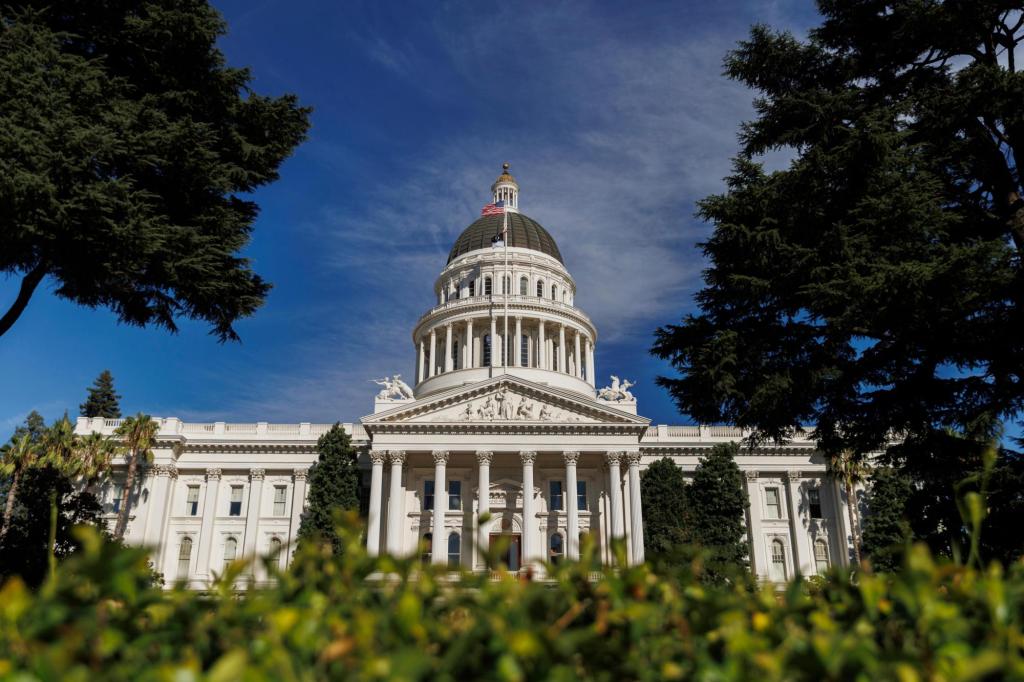The California Legislature is weighing a bill to protect voters’ privacy in the digital age — and if it passes, certain personal information would no longer appear in newspaper notices tied to recall efforts.
A bill introduced by Sen. Rosilicie Ochoa Bogh, R-Yucaipa, would amend the California Elections Code to allow signatures and street addresses to be removed from the publicly published notice that kicks off a recall effort.

Under the law, people who initiate a recall must publish a Notice of Intention to Recall in a newspaper, which includes proponents’ full names, signatures and street addresses.
The signatures are typically displayed in a column format within the published notice, allowing the public to see who is backing the effort.
SB 270 would require only a proponent’s name, city, state and ZIP code to be included in the published notice.
In California, recall proponents are the small group who officially launch the process by filing the Notice of Intention to Recall. They’re different from supporters, who sign the petition later to help qualify it for the ballot.
Ochoa Bogh said the legislation is about protecting people’s privacy in a digital world where information spreads quickly and can be misused.
“While this may have made sense before information became easily available via the internet, in today’s climate of retaliatory politics, releasing such personally identifying information could lead to intimidation, harassment, and in extreme cases, violence,” Ochoa Bogh said.
California has allowed voters to recall elected officials since 1911. To initiate a recall, petitioners must file a notice with the relevant elections officer and serve a copy to the official they are attempting to remove from office.
State law also requires the notice to be published in a newspaper of general circulation. The secretary of state’s office said that since at least 1996, state law has required a copy of the entire notice to be published, including the proponents’ addresses and signatures.
Under SB 270, recall proponents would still need to submit full identifying information to election officials and the targeted official, but that information wouldn’t appear in the published notice.
Election officials and the secretary of state would be required to redact that personal information before releasing the records publicly, even under the California Public Records Act.
“SB 270 strikes a balance between transparency and protecting those who engage in our democratic process,” Ochoa Bogh said.
Political consultant Chris Robles, who said he has worked on nine local recall campaigns since 2001, including a 2023 City Council recall effort in Yucaipa, where he served as a consultant for the recall organizers, noted the risks posed by the digital storage of personal information.
“In this day, where we have digital newspapers, somebody could easily take these signatures and misuse them … the signature they use to register to vote,” said Robles, a former chair of the San Bernardino County Democratic Central Committee.
“I am proud to see the support … for this bipartisan effort to enhance voter privacy and security,” he said.
The notice would still be required to be published in a newspaper, but there are alternatives if newspaper publication isn’t possible. In such cases, the notice could be posted in at least three public locations within the jurisdiction of the targeted official and on at least three websites, including one for the jurisdiction, one for a local business association and one serving as a community bulletin board.
These new rules would apply to all recall elections, both local and state.
The secretary of state would be responsible for writing regulations on how those online postings should work.
Ochoa Bogh said the bill won’t affect transparency or change the thresholds needed to trigger a recall.
“The recall is a critical tool for electoral accountability. We must ensure it remains accessible and safe for Californians who choose to use it,” she said.
The bill — co-authored by Sens. Steven Choi, R-Irvine, and Melissa Hurtado, D-Bakersfield — cleared the Senate Elections and Constitutional Amendments Committee last week with bipartisan support. No opposition has been raised as of yet.
This isn’t the first time Ochoa Bogh has pushed such an effort.
Last year, she introduced a similar bill, SB 1293, which would have required local election officials or the secretary of state to redact personal information from the Notice of Intention to Recall before making it public. However, the bill stalled in the Senate Appropriations Committee and did not receive a full floor vote.
SB 270 will next be considered by the Senate Judiciary Committee.
Originally Published:



